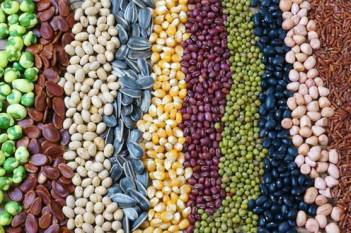CHANDIGARH, 24 October 2024: As global food insecurity and malnutrition continue to pose significant challenges, the seed industry stands as a critical player in addressing these issues.
According to the United Nations, over 2.8 billion people cannot afford a healthy diet, leading to various forms of malnutrition, including undernutrition, micronutrient deficiencies, and obesity. At the same time, nearly one-third of the world’s food production is wasted, enough to feed an additional 2 billion people.
India, with its prominent role in global agriculture, ranks sixth in the world’s food market, accounting for 70% of sales, and fifth in production, consumption, and export. With total food grains production standing at 332.98 million tonnes, the country is uniquely positioned to contribute to global food security. However, meeting this challenge requires more than just increasing food production, it calls for improving the quality of what we grow, and this is where the seed industry plays a vital role.
Ajai Rana, Chairman of the Federation of Seed Industry of India (FSII) highlights the significance of the seed industry in addressing food and nutritional challenges. “Seeds are the foundation of agriculture. By using advanced seed technology, we can provide farmers with high-quality seeds that are not only resilient to climate challenges but also rich in nutrients,” says Rana. "This ensures that farmers can grow more food with better nutritional value, helping to meet the dietary needs of billions.
"The seed industry directly responsible for contributions to food security by enabling the cultivation of higher-yielding and more resilient crops. This results in greater food production to meet growing demand. Additionally, innovations in seed technology have allowed for the development of crops that are fortified with essential vitamins and minerals, helping to combat malnutrition. The seed industry’s impact extends beyond just boosting yields. It is also crucial for enhancing the nutritional value of food crops.
“We are focusing on developing seeds for crops that are naturally rich in essential nutrients,” says Rana. “This includes biofortified varieties that offer higher levels of vitamins, minerals, and proteins, which are critical for tackling malnutrition. By improving the nutritional content of crops, we are directly contributing to better health outcomes.” Farmers like Ganesh Nanote from Maharashtra have seen firsthand the benefits of improved seeds.
“With better-quality seeds, we can grow crops that are not only higher in yield but also more nutritious,” says Nanote. “This has helped us not only in earning a better livelihood but also in ensuring that the food we produce is healthier for our families and communities.” Ajai Rana also highlights the industry’s role in sustainability.
“Sustainability is key to long-term food security. Our goal is to develop seeds that enable farmers to produce more food using fewer resources, such as water and fertilizers,” he says. “This ensures that agricultural practices remain environmentally sustainable while also providing nutritious food.” As India continues to play a key role in the global food system, the seed industry’s contribution to ensuring both food and nutritional security is crucial. Through innovations in seed technology, the industry is supporting sustainable agricultural practices that will help feed the growing global population while also enhancing the quality of food. This makes the seed industry a central player in the mission to ensure access to nutritious food for all.























